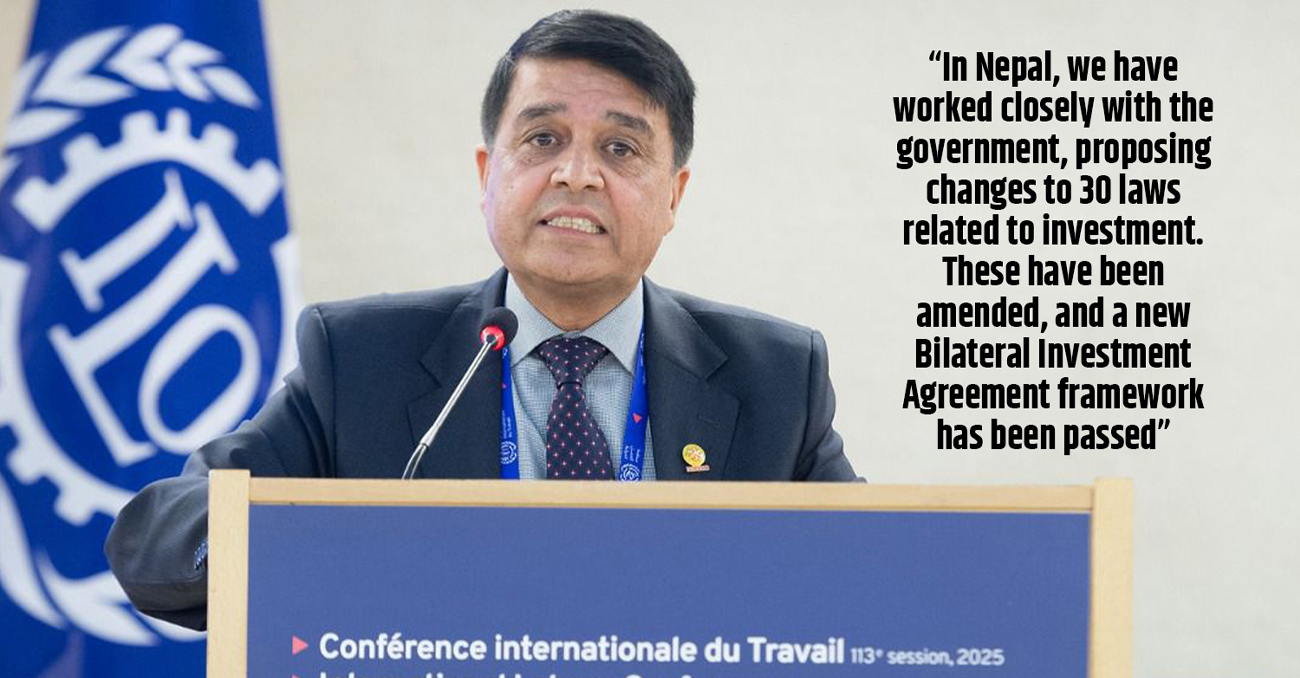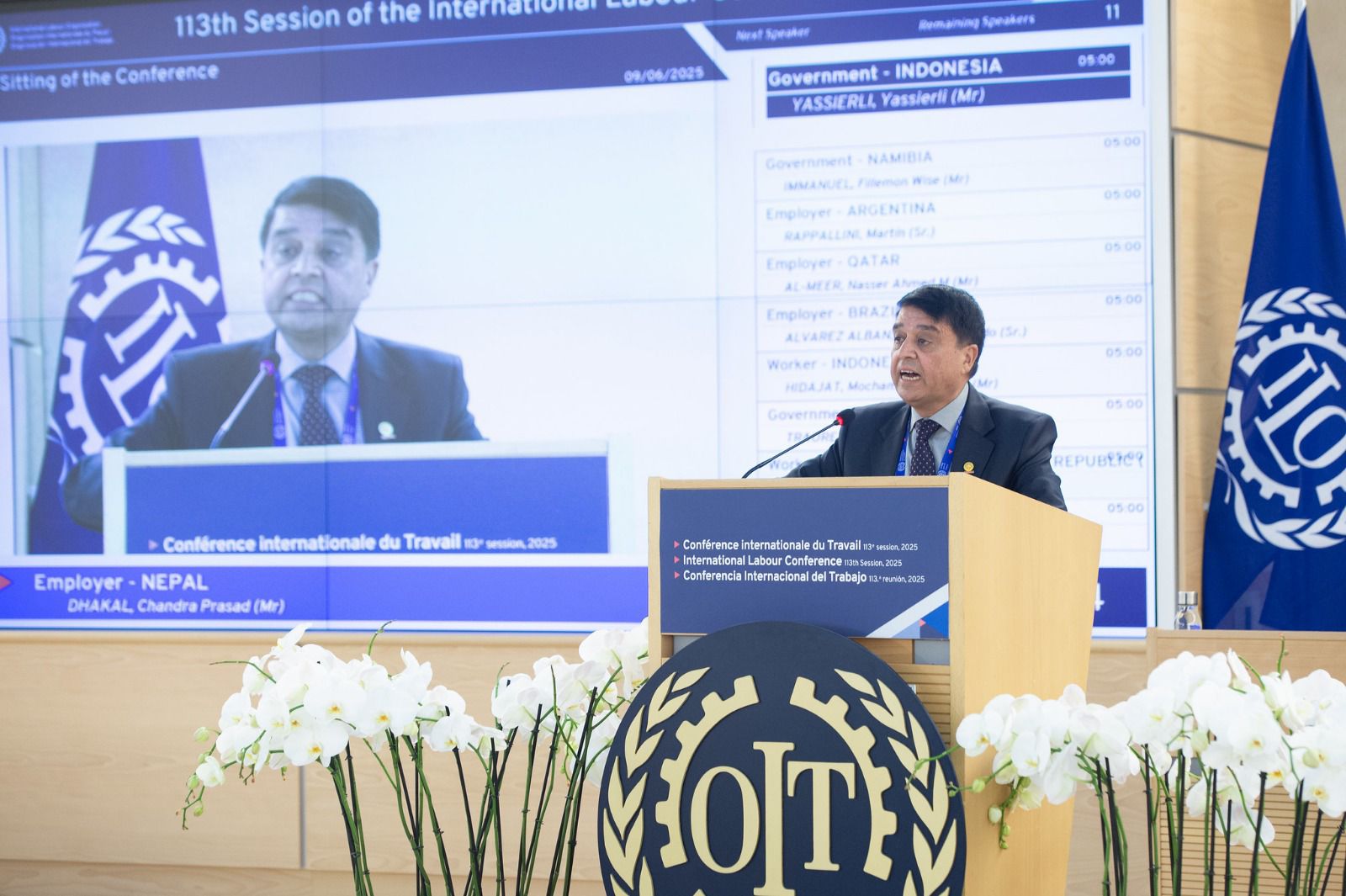
Geneva. President of the Federation of Nepalese Chambers of Commerce and Industry (FNCCI), Chandra Prasad Dhakal, addressed the 113th session of the International Labour Conference in Geneva with a strong call for stable policies, private sector engagement, and international cooperation to ensure inclusive economic growth and the creation of decent work. Speaking before an audience comprising government representatives, workers’ organizations, and employer groups, Dhakal emphasized the importance of the private sector in driving job creation and praised the ILO’s tripartite model for fostering collaboration among all key stakeholders in the labour market. He stated that while the roles of stakeholders may vary, the shared goal remains clear: creating an enabling environment for businesses to thrive and ensuring that work is decent and inclusive.
During his remarks, President Dhakal expressed support for the ILO Director-General’s report for 2025, which outlines a development approach that connects investment-led growth with labour rights and social inclusion. Highlighting Nepal’s progress, he noted that the country has taken concrete steps to reform its investment climate, including amendments to thirty laws related to investment and the adoption of a new Bilateral Investment Agreement framework. According to Dhakal, these reforms are not only helping existing formal businesses but are also encouraging informal enterprises to register and enter the formal economy.
As a result of these efforts, Nepal has been recognized as one of four global “champion countries” for its commitment to formalizing the economy and upholding labour standards. This designation, Dhakal explained, demonstrates the country’s willingness to align with international obligations and to welcome responsible foreign investment. He also spoke about Nepal’s economic potential, citing opportunities in hydropower, tourism, agriculture, and information technology, which are supported by Nepal’s unique geography and strategic position between two major economies—India and China. He reassured investors that even after Nepal graduates from its Least Developed Country (LDC) status in 2026, duty-free access to markets in China and India will remain, alongside preferential trade arrangements with Europe and the United States.

In addition to outlining economic reforms, Dhakal also highlighted the importance of climate financing for vulnerable countries like Nepal, which contribute little to global emissions but face disproportionate climate-related challenges. He called for greater international support, especially through special provisions for mountainous and island nations in terms of market access and development assistance. Dhakal emphasized the urgency of protecting the Himalayas, referring to them as the “roof of the world,” and urged the global community to act accordingly.
He also mentioned FNCCI’s establishment of a Foreign Direct Investment (FDI) support desk to assist international investors and a memorandum of understanding signed with workers’ organizations to strengthen dialogue and cooperation between public and private sectors. Concluding his speech, President Dhakal reiterated Nepal’s commitment to promoting decent jobs through high economic growth as it prepares to transition out of LDC status. He pledged Nepal’s readiness to collaborate with global partners to build a more inclusive and sustainable future for both the country and the wider world.
The International Labour Conference, held annually by the International Labour Organization, serves as a key platform for shaping global labour standards, discussing employment trends, and promoting decent work worldwide.
FACEBOOK COMMENTS